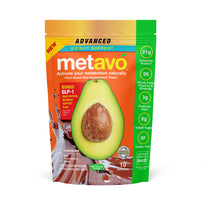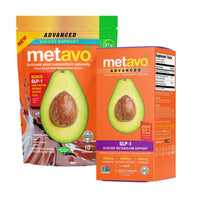In the pursuit of health and weight management, many people turn to rigid diets that promise quick results. However, in recent years, a growing body of evidence suggests that these diets don’t work. Instead, dieters should aim for “metabolic flexibility” – the opposite of a rigid diet.
But what is metabolic flexibility? In this blog post, we'll explore the concept and explain why it's a winning strategy compared to rigid diets.
READ MORE: What Is Metabolic Flexibility and Why Does It Matter?
READ MORE: The Metabolic Flexibility Toolbox: Nutrition, Exercise, and Lifestyle Tips
The Downside of Rigid Diets
A “rigid” diet is one that involves strict restrictions on calorie intake, specific food groups, or meal timing. Many people find that when they begin one of these diets, they shed weight quickly.
But soon there’s a plateau – then the weight comes back. That’s because of several downsides to any rigid diet:
- Metabolic slowdown: Rigid diets can lead to a slowed metabolism, making it harder to maintain weight loss over time. Many diets also cause a shortage of calories, which results in a decreased metabolic rate – you want the opposite.
- Nutrient deficiencies: Eliminating entire food groups or severely restricting calorie intake can lead to nutrient deficiencies. Your body requires a variety of nutrients from different sources to function optimally.
- Unsustainability: Rigid diets are often difficult to maintain in the long run. They can lead to cravings, binge-eating episodes, and a negative relationship with food.
The Power of Metabolic Flexibility
Metabolic flexibility, on the other hand, focuses on improving your body's ability to switch between using carbohydrates and fats for energy efficiently. Here's why it's a winning strategy:
- Sustainable weight management: Metabolic flexibility supports long-term weight management. By training your body to utilize different energy sources, you're less likely to experience drastic fluctuations in weight.
- Stable energy levels: Achieving metabolic flexibility helps maintain stable energy levels throughout the day. You won't experience energy crashes or rely on frequent snacks to keep you going.
- Balanced blood sugar: Metabolic flexibility supports healthy blood sugar levels. This is particularly important for individuals at risk of or managing conditions like diabetes.
How to Achieve Metabolic Flexibility
Achieving metabolic flexibility involves adopting a more balanced and flexible approach to diet and lifestyle. Here are some key strategies:
- Balance your diet: Focus on a diet that includes a variety of whole foods, including complex carbohydrates, healthy fats, and lean proteins.
- Exercise regularly: Incorporate both cardiovascular and strength-training exercises into your routine to improve your body's ability to switch between energy sources.
- Eat mindfully: Pay attention to your body's hunger cues and practice mindful eating to avoid overeating or emotional eating.
- Get adequate sleep: Ensure you get enough quality sleep to support metabolic processes and hormone regulation.
- Manage your stress: Engage in stress-reduction techniques such as meditation, deep breathing, or yoga to support metabolic health.
Metabolic flexibility offers a more balanced and sustainable approach to health and weight management compared to rigid diets. By focusing on improving your body's ability to efficiently utilize different energy sources, you can achieve stable energy levels, balanced blood sugar, and long-term weight management.
Remember that individual needs may vary, and it's crucial to consult with healthcare professionals or registered dietitians before making significant changes to your diet or lifestyle. Embrace the power of flexibility, and your body will thank you with improved overall well-being.
























Leave a comment
This site is protected by hCaptcha and the hCaptcha Privacy Policy and Terms of Service apply.